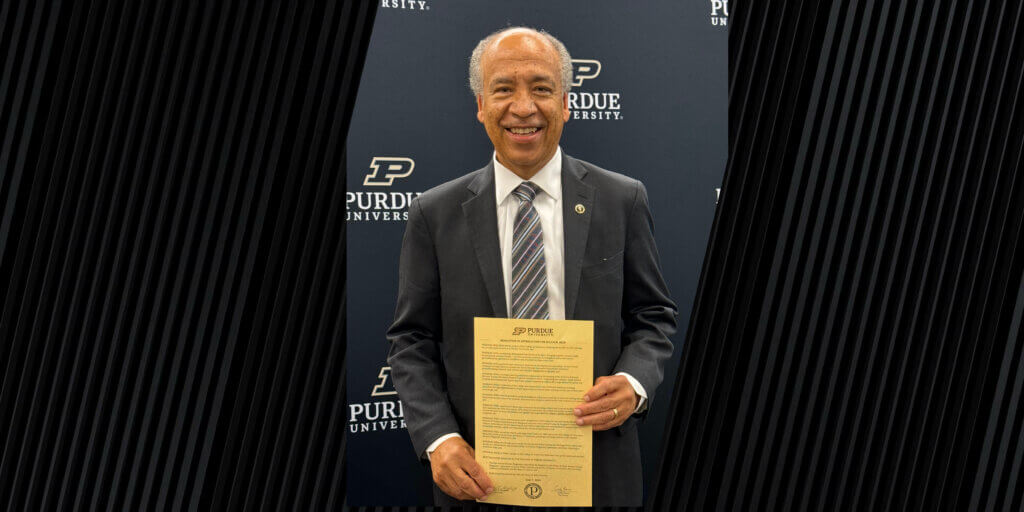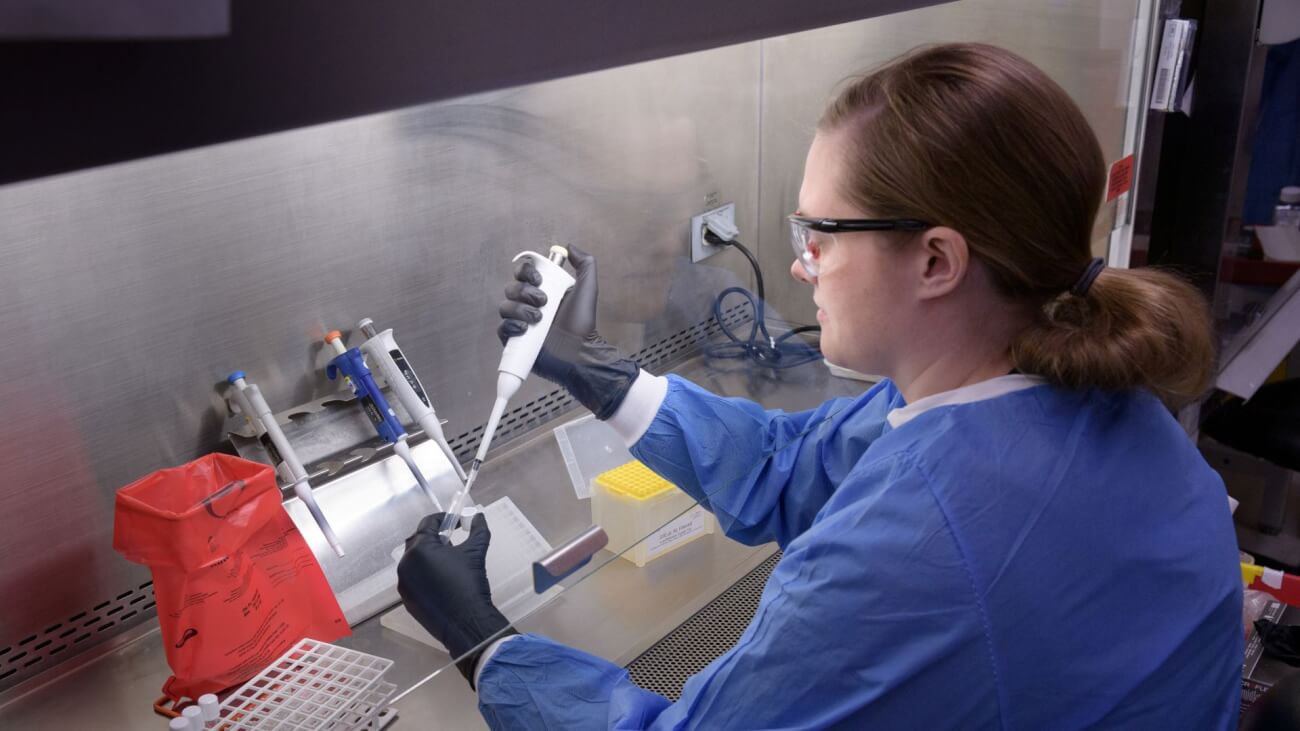Pioneering Purdue Veterinary Dean Honored with Renaming
In the summer of 1978, a newly graduated veterinarian from Tuskegee University in Alabama arrived at Purdue University to pursue a PhD in Pathology. He trained in the Animal Disease Diagnostic Laboratory (ADDL). Something that was unimaginable to Dr. Willie Reed at the time came true more than 45 years later at a meeting of the Purdue University Board of Trustees June 7, 2024. That’s when Provost Patrick Wolfe announced that in recognition of Dr. Reed’s achievements and accomplishments over 25 years of service to Purdue as a faculty member and dean of the College of Veterinary Medicine, the board was taking the unprecedented step for a dean of naming a building after him.
Dr. Reed, who stepped down June 30, was praised for consistently championing One Health at Purdue — bringing together animal health, human health and environmental health. He also guided the college in developing and executing a series of three visionary strategic plans to enhance the future through innovative educational initiatives, groundbreaking research, creative and effective engagement programs and exemplary initiatives to advance diversity, equity and inclusion. His strategic planning initiatives culminated in the opening of the David and Bonnie Brunner Purdue Veterinary Medical Hospital Complex in 2022 — expanding the college’s Small Animal Hospital and creating new Equine and Farm Animal hospitals to replace the Large Animal Hospital.
Dean Reed’s leadership also improved Purdue DVM and veterinary nursing education through implementation of new approaches to clinical-skills training and the use of innovative technology; and fostered growth in research programs, achieving record-level research funding through expanded external support for scientific discovery that advances medicine for both animals and humans. He also spearheaded efforts that enhanced teaching, clinical and research facilities in Lynn Hall; increased the DVM class size by 20%; fostered recruitment of faculty members from around the globe in many disciplines; and significantly expanded the college’s global engagement programs.

At the trustees’ meeting, Provost Wolfe explained that the ADDL is ideally matched with Dr. Reed’s research background and contributions, and therefore it was being renamed as the Willie M. Reed Animal Disease Diagnostic Laboratory. Dr. Reed responded by expressing his appreciation to the trustees, Provost Wolfe and Purdue President Mung Chiang. “Thank you for the wonderful gesture of naming this special laboratory in my honor and thank you for your confidence in me for over 17 years to lead our College of Veterinary Medicine,” Dr. Reed said, after which he received a standing ovation.
Measuring Impact
Consisting of both the Reed Laboratory in West Lafayette and the Heeke Laboratory in Southern Indiana, the ADDL supports animal agriculture in Indiana by partnering with Indiana’s State Board of Animal Health for both surveillance and outbreak testing, and foreign animal disease investigations including Highly Pathogenic Avian Influenza testing in both birds and dairy cattle.

The heat density map (right) depicts the geographical origin of samples that have been tested at the ADDL, which is fully accredited by the American Association of Veterinary Laboratory Diagnosticians (AAVLD) and serves as the official diagnostic laboratory for the State of Indiana.
MISSION
Provide reliable, innovative, and vigilant services to veterinarians, animal producers, and regulatory agencies.
VISION
To be Indiana’s “go-to lab” for diagnostics and surveillance testing for all production animal, companion animal, and wildlife species.
VALUES
With a skilled and dedicated workforce delivering services that meet all current standards, the ADDL plays an integral role in animal health by coordinating diagnostic strategies and delivering timely test results to partners in multiple sectors of veterinary medicine.
The ADDL Team consists of 16 veterinarians, eight residents, 45 laboratory technicians and support staff, and ten supervisors and team leads. Multiple team members are boarded specialists, certified by the American College of Veterinary Pathologists (ACVP), the American College of Poultry Veterinarians (ACPV); the American College of Veterinary Microbiologists (ACVM) – Virology, Immunology, Bacteriology/Mycology, and Parasitology; the American Board of Veterinary Toxicology (ABVT); and the American Board of Toxicology (ABT).
During the past year, the ADDL conducted 5,671 tests, serving a total of 50 states and 27 countries.
Number of Accessions by Species
| SPECIES | Number of Tests |
| Aquatic | 66 |
| Avian | 7450 |
| Bovine | 1,664 |
| Camelid | 114 |
| Canine | 11,250 |
| Caprine | 830 |
| Cervid | 1,058 |
| Equine | 6,013 |
| Feline | 1,471 |
| Lab Animal | 1,447 |
| Miscellaneous | 129 |
| Non-Animal | 334 |
| Ovine | 250 |
| Porcine | 1,977 |
Canine Genetics Testing
The ADDL tested canine samples from across the globe for the presence of genetic disease markers discovered through PVM Research


